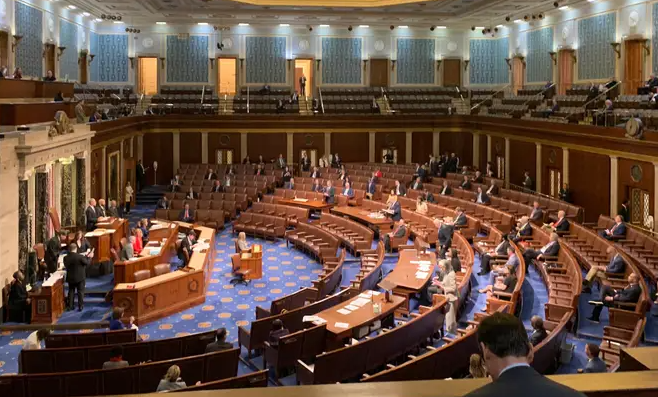In December, the House of Representatives approved the National Defense Authorization Act (NDAA), which includes a provision extending the expiration date of Section 702 of the Foreign Intelligence Surveillance Act (FISA). Originally set to expire at the end of the year, the NDAA prolongs its validity until April of the following year.
The legislation was approved with 310 votes in favor and 118 against, with support from 163 Democrats and 147 Republicans. Section 702 enables federal agencies to conduct surveillance on the communications of foreign nationals.
However, critics contend that it potentially allows the government to bypass Fourth Amendment privacy safeguards, leading to the monitoring of Americans’ communications without the need for a warrant.
Upon passage in the Senate, Senator Rand Paul from Kentucky put forth a proposal to eliminate the Section 702 component, but the motion was not successful. Senator Paul has consistently advocated for the reform of Section 702, emphasizing the necessity for changes. However, he now expresses that the opportunity for such reform has elapsed.
Senator Paul stated that members of Congress had expected to utilize the deadline as a chance to modify Section 702 and reform the Foreign Intelligence Surveillance Act (FISA) to enhance the protection of Americans’ civil liberties.
Senator Paul cautioned that intelligence agencies, when allowed to encroach upon the private lives of Americans, would wield unchecked power without challenges.
The American Civil Liberties Union (ACLU) cautions that the Foreign Intelligence Surveillance Act (FISA) is not exclusively employed against terrorists or adversaries. Instead, it facilitates “warrantless surveillance of Americans’ international communications,” granting federal agents the authority to engage in surveillance of academics, journalists, and businesspeople.
In May, a court determined that the FBI had conducted over 278,000 searches of the database, including during its investigations into the events of the Capitol Hill riots on January 6. The court concluded that the federal authorities had misused the database, as the searches were not reasonably expected to yield foreign intelligence or evidence of criminal activity.
Despite concerns and critiques, the Biden administration contended that the legislation should remain in effect. They urged Congress to extend the expiry deadline of the legislation.




